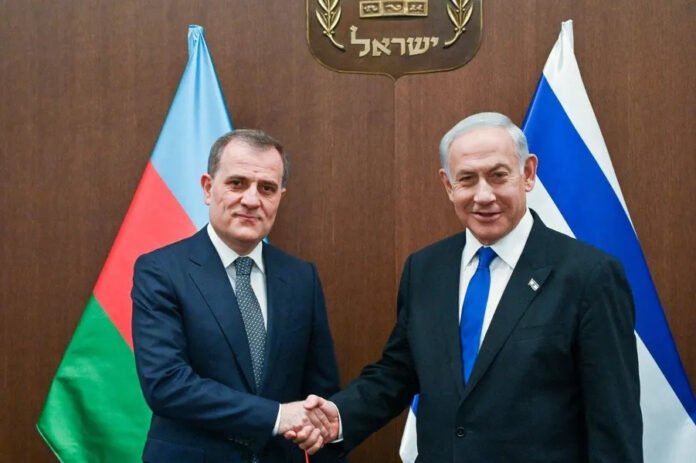Tel Aviv: The Israeli defence industries believe that Azerbaijan will continue purchasing Israeli military systems even after finalising peace with Armenia.
This assessment is explained by the fact that the strategic partnership between Azerbaijan and Israel is driven not just by the previous conflict with Armenia but also by deep, ongoing mutual interests, including security concerns about Iran, cutting-edge defence technologies, and broader geopolitical cooperation.
Azerbaijan has been one of the largest buyers of Israeli defence products, accounting for billions in military contracts and sophisticated systems such as drones, air defence, and cyber capabilities.
Both nations view their partnership as a counterweight to Iran, strengthening Israel’s position in the region while giving Azerbaijan military, intelligence, and technological advantages. In recent years, there were reports that Israel uses Azerbaijan for collecting intelligence on Iran.
During the fighting between Azerbaijan and Armenia, Israeli weapon systems have been used on a wide scale by the Azeris. These included the Lora long range ground- ground missile made by Israel Aerospace Industries (IAI), the Harop heavy loitering weapon system also made by IAI, and different types of loitering weapon system mainly those manufactured by Israeli company Uvision. Now, the Azeris want loitering weapon systems with bigger warheads.
Azerbaijan is operating the Barak MX air defence system made by IAI.
Barak-MX is a modular air defence system and is designed to address missile and aircraft threats. It operates both in marine platforms and land, and belongs to the Barak missile family.
The Barak MX system is capable of simple integration with any existing legacy or sensors.
Last year, Baku asked Israel for the Spy – X loitering weapon system made by Israeli company Blue Bird. The Spy X has a 50 km operational range, 1.5 hours mission time, autonomous electro-optical guided attack, optimal effect-on-target and tight integration with Bluebird’s VTOL ISR UAV family.
Shortly before the peace agreement was signed, Baku submitted a new list of defence equipment to the Israeli Ministry of Defence. According to Israeli sources, this list also includes extremely sophisticated networked communication systems, EW systems, and more loitering weaponry, but with bigger warheads and anti-tank capabilities.
As both nations view their alliance as a strategic need that transcends particular wars like that with Armenia, it is anticipated that the partnership will grow stronger, with expanded cooperation in areas like cyber defence, intelligence sharing, and advanced weapons.
-The writer is an Israel-based freelance journalist. The views expressed are of the writer and do not necessarily reflect the views of Raksha Anirveda






